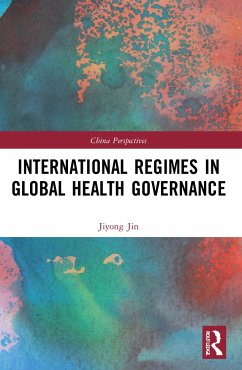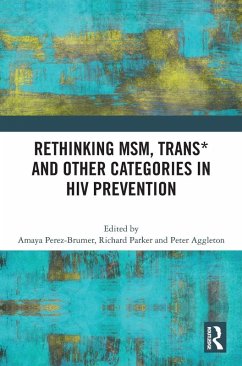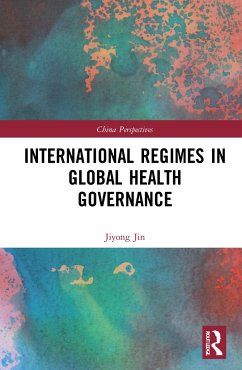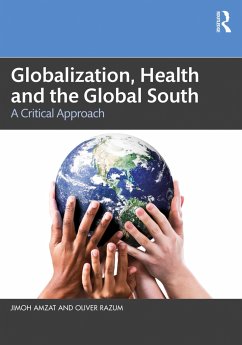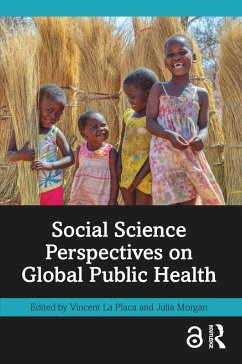
Routledge Handbook on the Politics of Global Health
Versandkostenfrei!
Versandfertig in 6-10 Tagen
51,99 €
inkl. MwSt.

PAYBACK Punkte
26 °P sammeln!
In the early twenty-first century, key public health issues and challenges have taken centre stage on the global scene, and health has been placed at the heart of our collective aspirations for human development and well-being. But significant debate exists not only about the causes, but also about the possible solutions for nearly all of the most important global health challenges.Competing visions of the values and perspectives that should underlie global health policies have emerged, ranging from an emphasis on cost eff ectiveness and resource constraints on one extreme, to new calls for he...
In the early twenty-first century, key public health issues and challenges have taken centre stage on the global scene, and health has been placed at the heart of our collective aspirations for human development and well-being. But significant debate exists not only about the causes, but also about the possible solutions for nearly all of the most important global health challenges.
Competing visions of the values and perspectives that should underlie global health policies have emerged, ranging from an emphasis on cost eff ectiveness and resource constraints on one extreme, to new calls for health and human rights, and renewed calls for health and social justice on the other. The role of different intergovernmental agencies, bilateral or unilateral donors, public or private institutions and initiatives, has increasingly been called into question, whilst the spread of neoliberal policies and programmes, and existing international trade regimes and intellectual property rights, are deeply implicated in relation to global health responses.
This volume critically evaluates how the global health industry has evolved and how the interests of diverse political and economic stakeholders are shaping the context of a rapidly changing institutional landscape. Bringing together leading authors from across the world, the Handbook's eight sections explore:
- Critical perspectives on global health
- Globalisation, neoliberalism, and health systems
- The changing shape of global health governance
- Development assistance and the politics of global health
- Scale-up, scale-down, and the sustainability of global health programmes
- Intellectual property rights, trade relations, and global health
- Humanitarian emergencies and global health politics
- Human rights, social justice, and global health
The Routledge Handbook on the Politics of Global Health addresses both the emerging issues and conceptualisations of the political strategies, policy-making processes, and global governance of global health, along with expanding upon and highlighting the critical priorities in this rapidly evolving field. It provides an authoritative overview for students, practitioners, researchers, and policymakers working in or concerned with the politics of public health around the globe.
Competing visions of the values and perspectives that should underlie global health policies have emerged, ranging from an emphasis on cost eff ectiveness and resource constraints on one extreme, to new calls for health and human rights, and renewed calls for health and social justice on the other. The role of different intergovernmental agencies, bilateral or unilateral donors, public or private institutions and initiatives, has increasingly been called into question, whilst the spread of neoliberal policies and programmes, and existing international trade regimes and intellectual property rights, are deeply implicated in relation to global health responses.
This volume critically evaluates how the global health industry has evolved and how the interests of diverse political and economic stakeholders are shaping the context of a rapidly changing institutional landscape. Bringing together leading authors from across the world, the Handbook's eight sections explore:
- Critical perspectives on global health
- Globalisation, neoliberalism, and health systems
- The changing shape of global health governance
- Development assistance and the politics of global health
- Scale-up, scale-down, and the sustainability of global health programmes
- Intellectual property rights, trade relations, and global health
- Humanitarian emergencies and global health politics
- Human rights, social justice, and global health
The Routledge Handbook on the Politics of Global Health addresses both the emerging issues and conceptualisations of the political strategies, policy-making processes, and global governance of global health, along with expanding upon and highlighting the critical priorities in this rapidly evolving field. It provides an authoritative overview for students, practitioners, researchers, and policymakers working in or concerned with the politics of public health around the globe.



